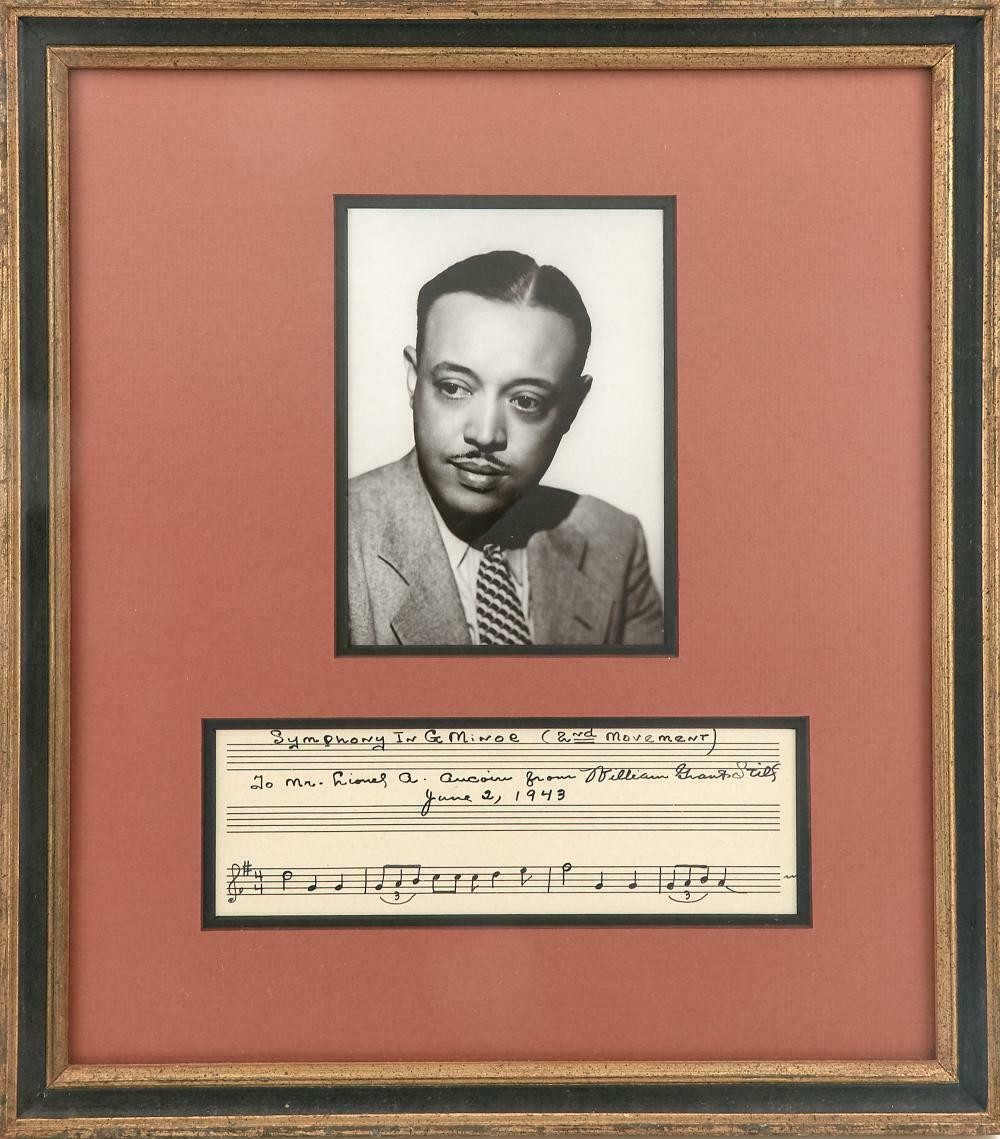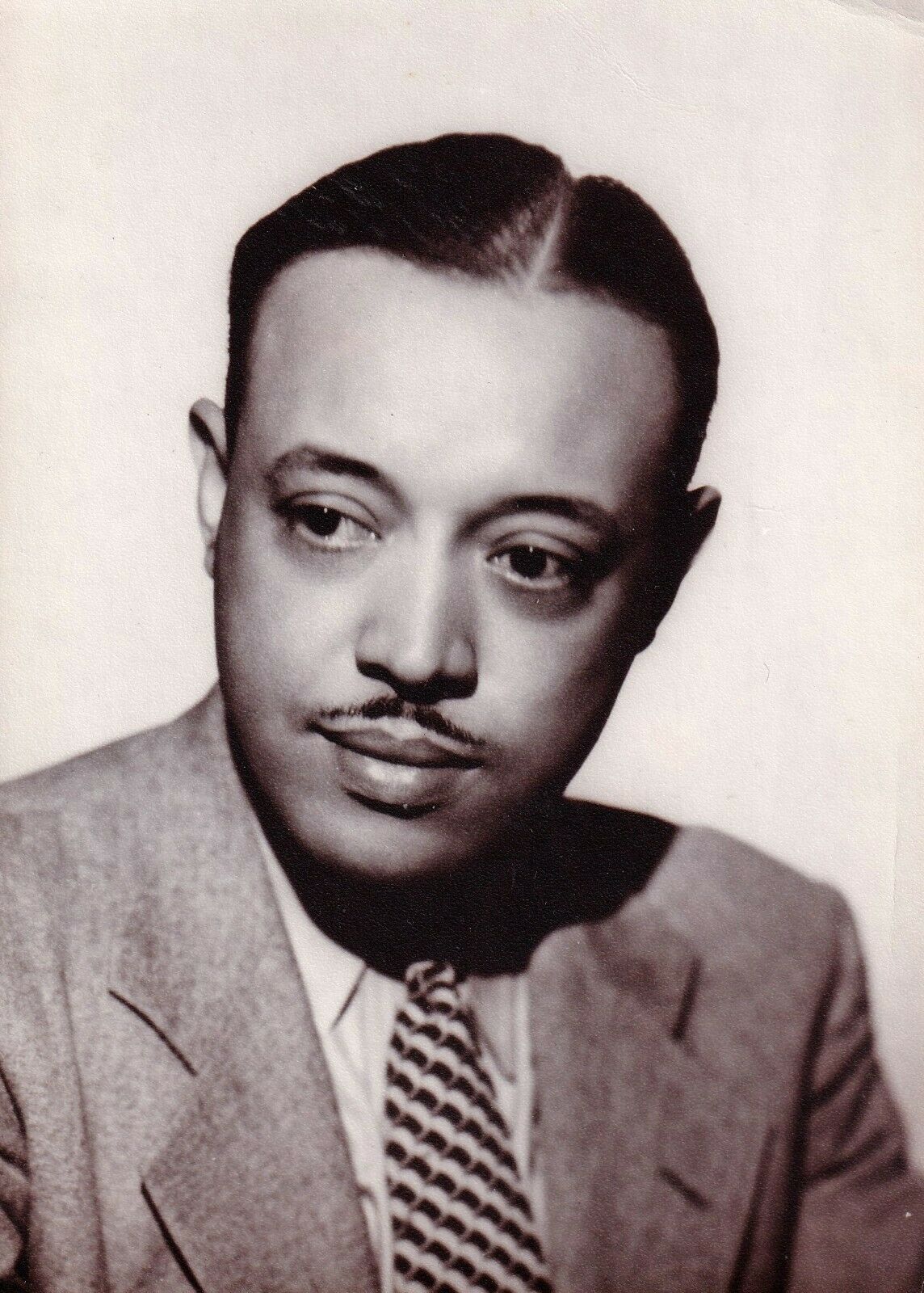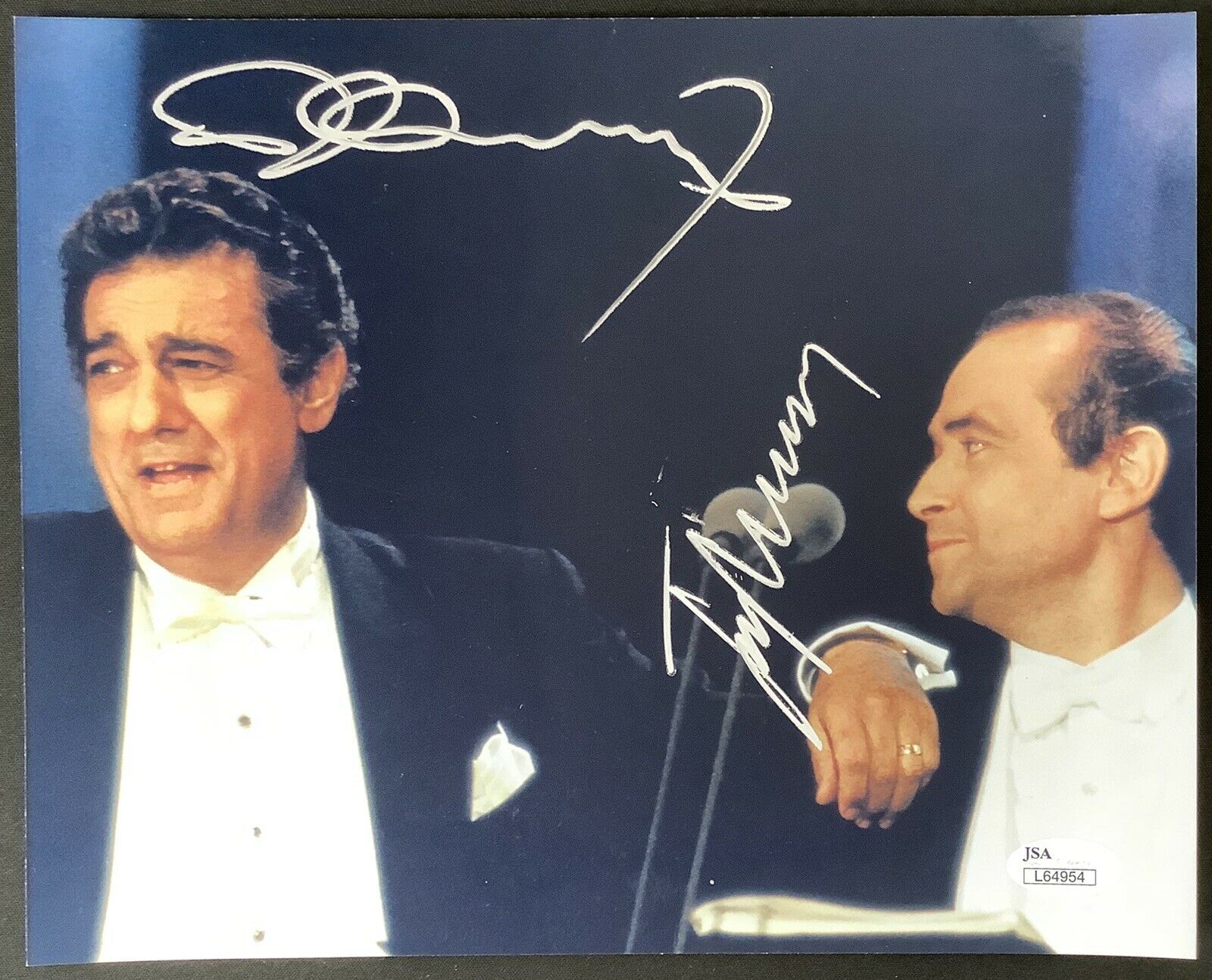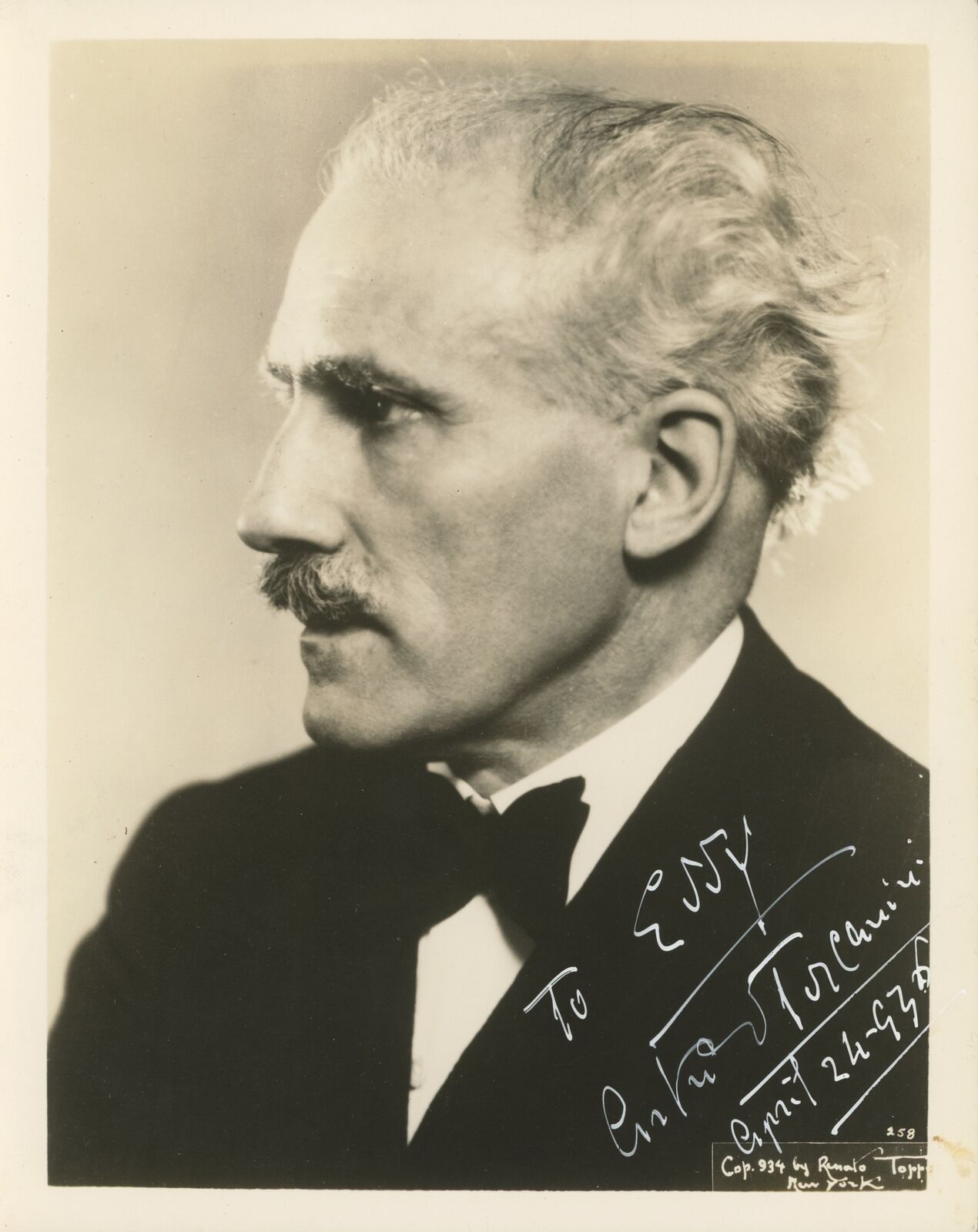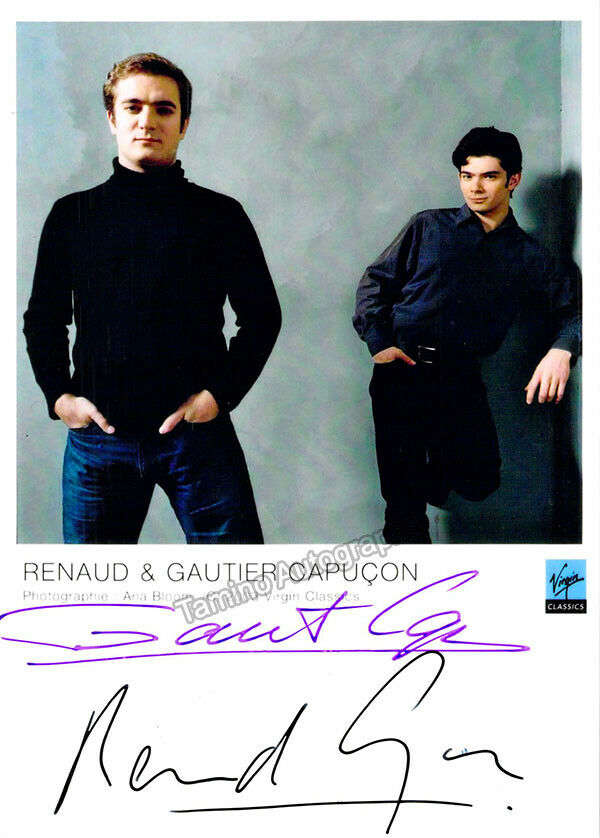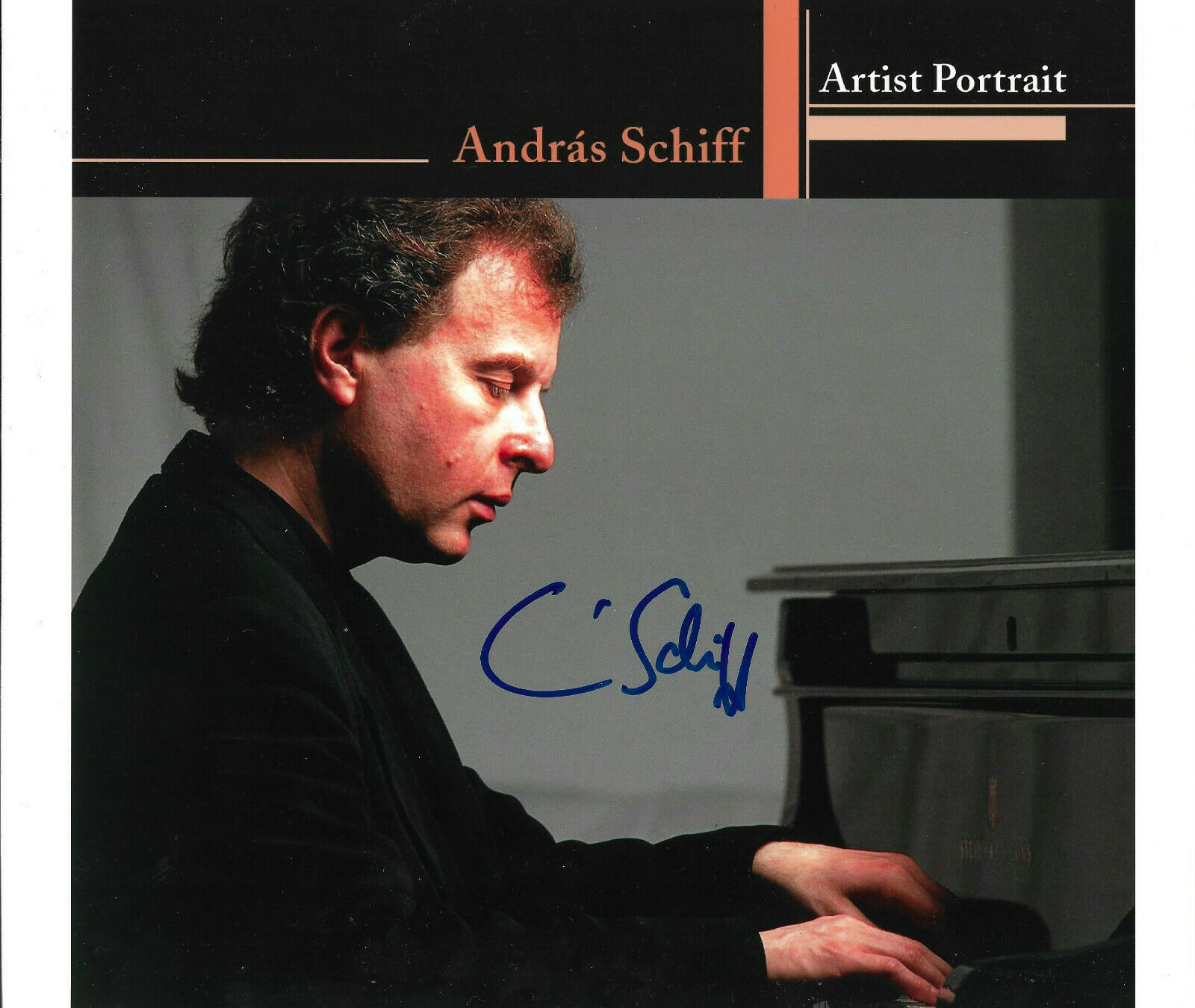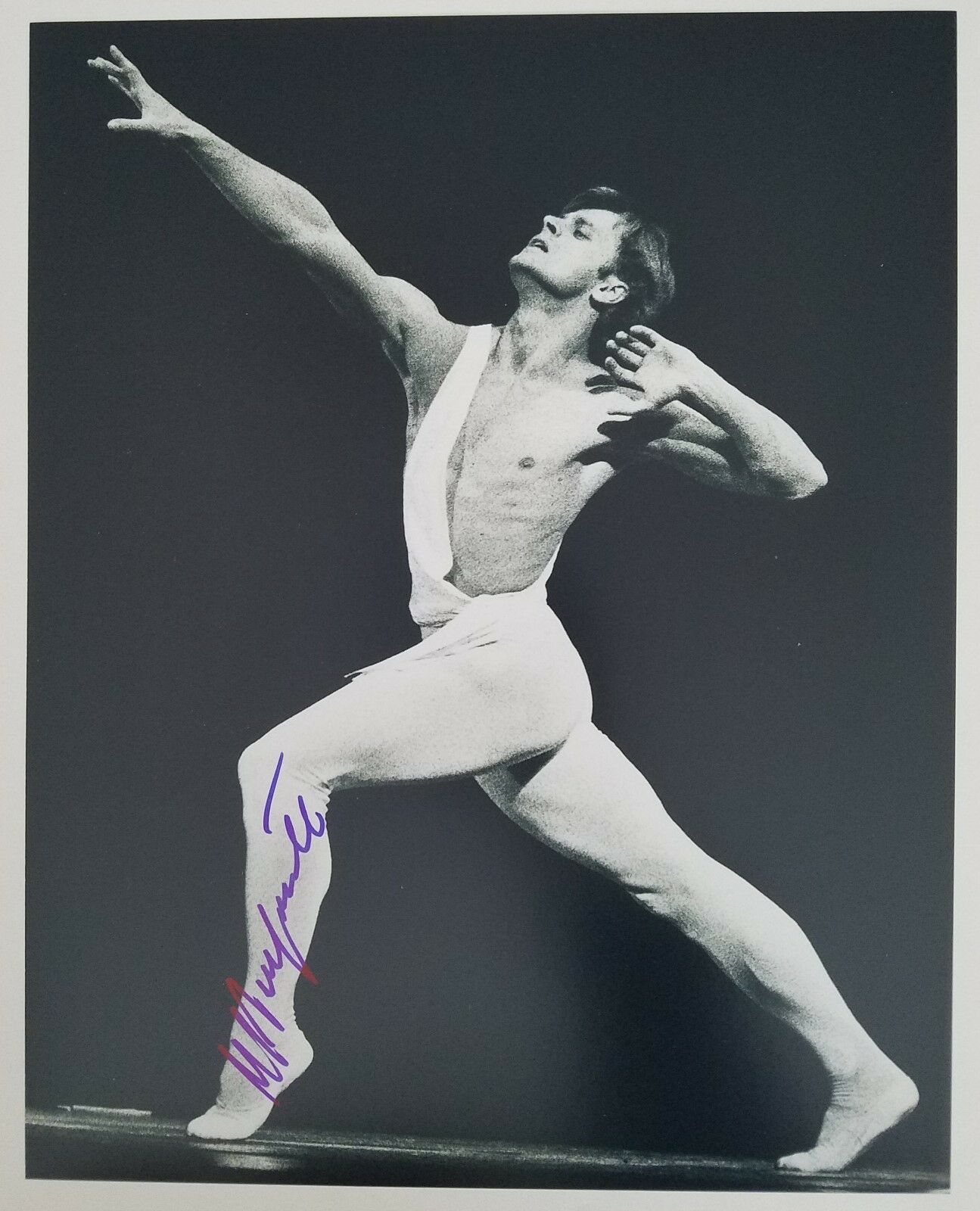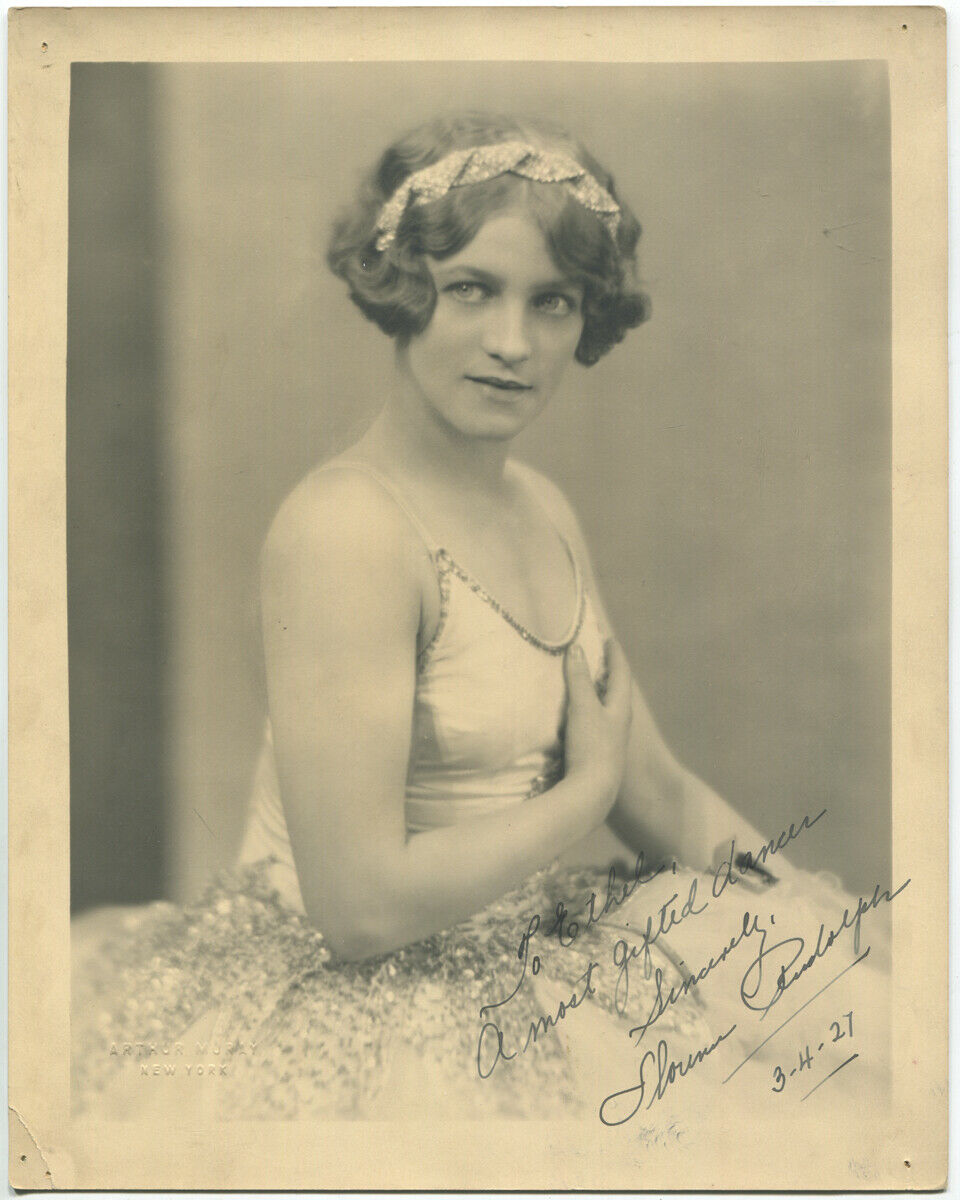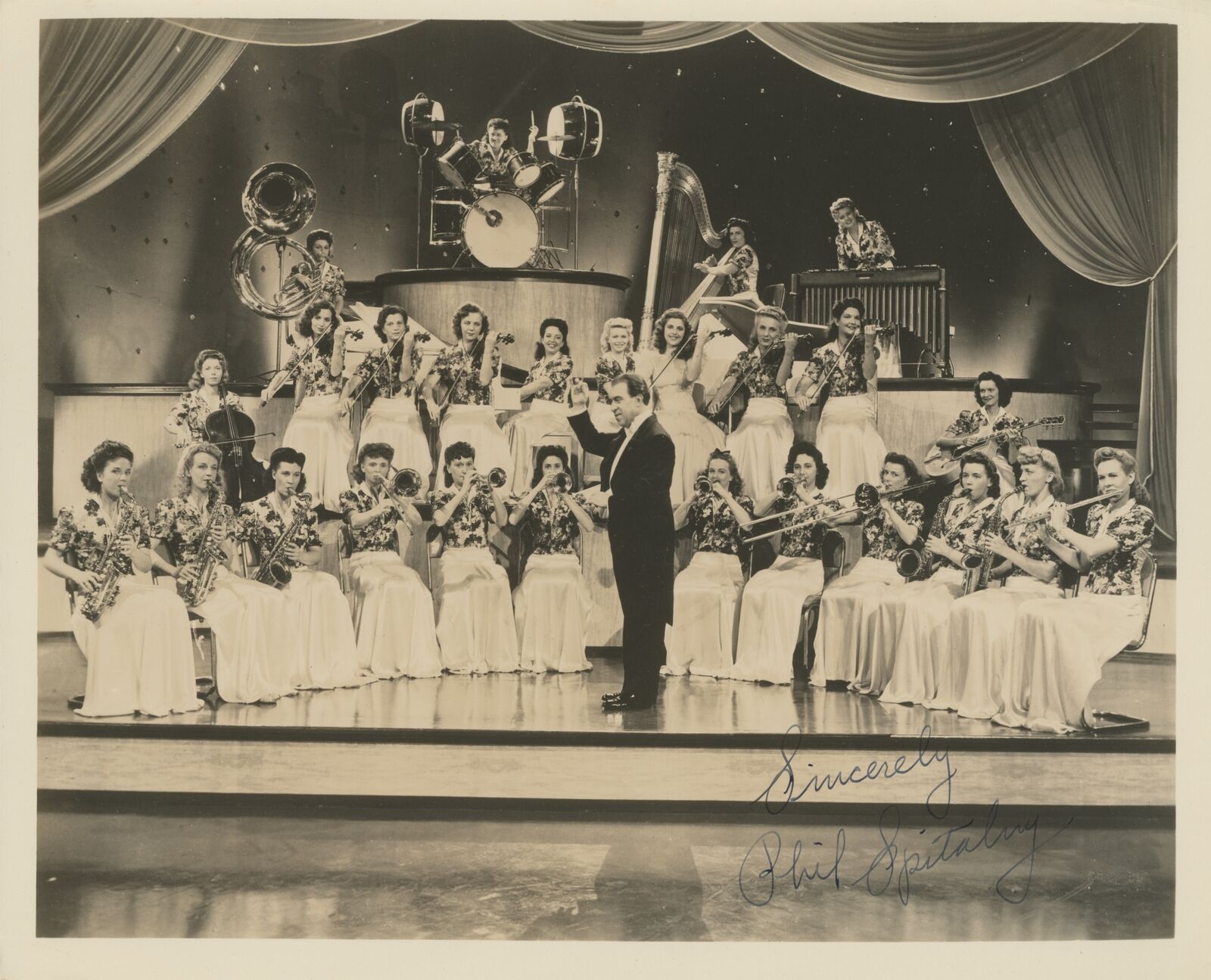-40%
WILLIAM GRANT STILL African American Composer Rare AMSQU from 2nd Symphony
$ 633.6
- Description
- Size Guide
Description
Autographed 4 bar musical quotation of the composer’s 2nd Symphony “Song of a New Race”. Still quoted the opening bars of the beautiful adagio movement and inscribed it to the noted 20th Century Composer autograph collector Lionel Aucoin, June 2, 1943.The quotation is archivally double matted and framed with anti-uv Plexiglas to 14.5” x 16.4” with an excellent 5” x 7” portrait of the composer.
Still (1895-1978) was afforded a musical education few African Americans before him were able to obtain. He was introduced to music by his step-father and took violin lessons. His intent was a medical career, but found himself involved in the extracurricular musical activities including learning to play various instruments and conducting and both arranging and orchestrating music for the school band at Wilberforce College, now Wilberforce University in Wilberforce, Ohio. He left school in 1915 without graduating to pursue music and found himself playing and arranging for several Ohio jazz bands. W.C. Handy heard him while on tour and hired the young musician to come to New York City as an arranger, where he wrote his first published arrangement. During those years he worked for Handy, Paul Whiteman, Donald Vorhees, Willard Robison and Artie Shaw. In 1920 Still went back to Ohio to study theory and composition at Oberlin with some money left by his father and a scholarship from the University who saw great promise in his work. After a year he was back in New York and signed to be in the pit band of to Eugie Blake’s new groundbreaking Broadway show, “Shuffle Along”. The show closed on Broadway in July, 1922 and the tour began in Boston in August. While in Boston, Still met the American composer George Chadwick and enrolled at the New England Conservatory of Music to study with him. He then moved back to New York City to study privately with the French-American composer Edgard Varèse, who was so taken with his work, began to program it with his International Composer’s Guild Concerts.
Still’s work is heavily influenced by African-American music including, spirituals, jazz, the blues and while he did compose using music he heard in the church; for instance in his first symphony, “The Afro-American Symphony” written in 1930, the first to break the color barrier when it was first performed by a non-black orchestra in 1931 (Rochester Philharmonic under the baton of Howard Hanson) and the first performed by a major American symphony orchestra when the New York Philharmonic gave it’s first performance of the work in November, 1935 under the baton of Hans Lange. Interestingly the Carnegie Hall Premiere was given on January 25, 1933 by Paul Whiteman and his Orchestra.
The second symphony, “Song of a New Race” in G minor, was finished in time for the World Premiere with the Philadelphia Orchestra under Leopold Stokowski on December 10, 1937 in Philadelphia and then at Carnegie Hall in New York City on December 14, 1937. The work while not as famous as the Afro-American Symphony is a broader step for Still as he does not use themes from his youth to flesh the work out. It is entirely original and infused with Jazz rhythms and brass highlights reminiscent of orchestrations of the period employed by Gershwin in “Rhapsody in Blue”. That said, Still’s work is wholly original and Stokowski declared that the symphony was a tremendous
advance over the former symphony, beautiful and vital though that was
. Olin Downes wrote on December 15, 1937 in the “New York Times”,
Mr. Still reaped more applause than Leopold the Great is in the habit of permitting even quite immortal composers to enjoy at his concerts
. He went on to say about the symphony,
Here is an unquestionable gift, and warm feeling, now sad, now gay, characteristic and sincere in expression.
Still would go on to write five symphonies in total in his overall oeuvre. Only the third was not performed in his lifetime.
Still, the pioneer African-American classical composer, often labeled as the Dean of African-American composer’s musical quotations are scarce.
We are happy to quote shipping of the piece in the frame, or we will be happy to remove the quotation and the photograph from the frame and ship them at our standard shipping rates. There is no further discount if removed from the frame.
We are quoting shipping for a priority mail framed item, which includes a purchased box, and peanuts. If you would like the photograph and quotation removed from the frame, please advise and our regular prioirty mail s&h rates of .00 domestic and .00 foreign will apply.
Harmonie Autographs and Music, Inc.
Music Antiquarian and Appraiser
New York, New York
All items guaranteed authentic
